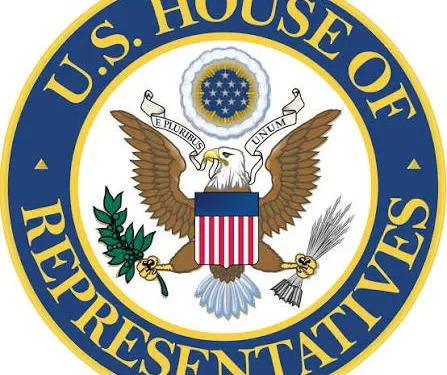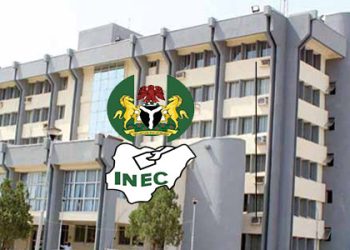The United States House Of Representatives has approved sanctions on Nigeria
The sponsors decried the alleged worsening persecution of Christians and other religious minorities.
They cited a catalogue of findings and reports that informed the measure, including media accounts and NGO data alleging large-scale attacks on civilians, destruction of places of worship, and a pattern of impunity.
The resolution reads in parts, “For over a decade, Islamic terror organisations have carried out mass murder, rape, kidnappings, and other atrocities targeting mostly Nigerian Christians and non-Fulani moderate Muslim populations, resulting in mass displacement and destruction of places of worship.
“Prominent Christian and Muslim leaders have been kidnapped or assassinated, including priests, pastors, and imams who advocate for religious tolerance;
“Religious leaders, such as Father Remigius Iyhula and Bishop Wilfred Anagbe, who testified on March 12, 2025, at a hearing of the House Foreign Affairs Committee about the persecution and targeted killings of Christians in the Diocese of Makurdi, have faced intimidation, threats, and harassment from both extremist groups and government authorities.”
Supporters of the measure argued that the CPC redesignation would strengthen diplomatic leverage to press Nigeria for accountability and protection of religious minorities.
“The designation of Nigeria as a CPC will enhance diplomatic efforts to encourage the Nigerian government to take necessary actions to protect religious minorities and uphold fundamental human rights,” they said.
They therefore moved that “President Donald Trump acted appropriately and decisively to redesignate Nigeria as a CPC and hold the Nigerian government accountable for its complicity in religious persecution by radical Islamists, such as Boko Haram and Fulani terrorists.”
They further recommended conditioning US foreign assistance on demonstrable steps by Nigeria to prevent persecution, prosecute alleged perpetrators, and care for displaced populations.
“The State Department should provide immediate humanitarian assistance directly to faith-based groups to support internally displaced people in Nigeria’s middle belt states.
“The United States, through the Department of State and Department of Treasury, should impose targeted sanctions, including visa bans and asset freezes under the Global Magnitsky framework and other restrictive measures, on individuals and entities responsible for severe violations of religious freedom in Nigeria, including sanctions against Miyetti Allah Cattle Breeders Association of Nigeria (MACBAN) and Miyetti Allah Kautal Hore, and should place Fulani-Ethnic Militias operating in Benue and Plateau States on the Entities of Particular Concern List under the International Religious Freedom Act,” the resolution read.
The resolution also asked the US to justify the purposes and amounts of recent security and development assistance to Nigeria and to tie future support to improved human-rights outcomes.
The resolution was referred to the House Foreign Affairs Committee and the Judiciary Committee for further consideration.
If it advances out of committee, the resolution would mark a clear congressional signal backing Trump’s CPC decision and could open the door to further legislative or executive actions.
Meanwhile, PUNCH Online had earlier reported that the Federal Government said the United States’ designation of Nigeria as a “country of particular concern” over alleged violations of religious freedom is based on a wrong perception of the country’s security challenges.
The Minister of Information and National Orientation, Mohammed Idris, stated this on Wednesday in Abuja while addressing journalists.
Idris said the US position stemmed from “misrepresentation and misinformation” about Nigeria’s internal security situation.
According to him, terrorism and violent crimes in Nigeria do not target any particular religious group.
“Nigeria faces long-standing security challenges that have impacted Christians and Muslims alike.
“Any narrative suggesting that the Nigerian state is failing to take action against religious attacks is based on misinformation or faulty data,” Idris said.









